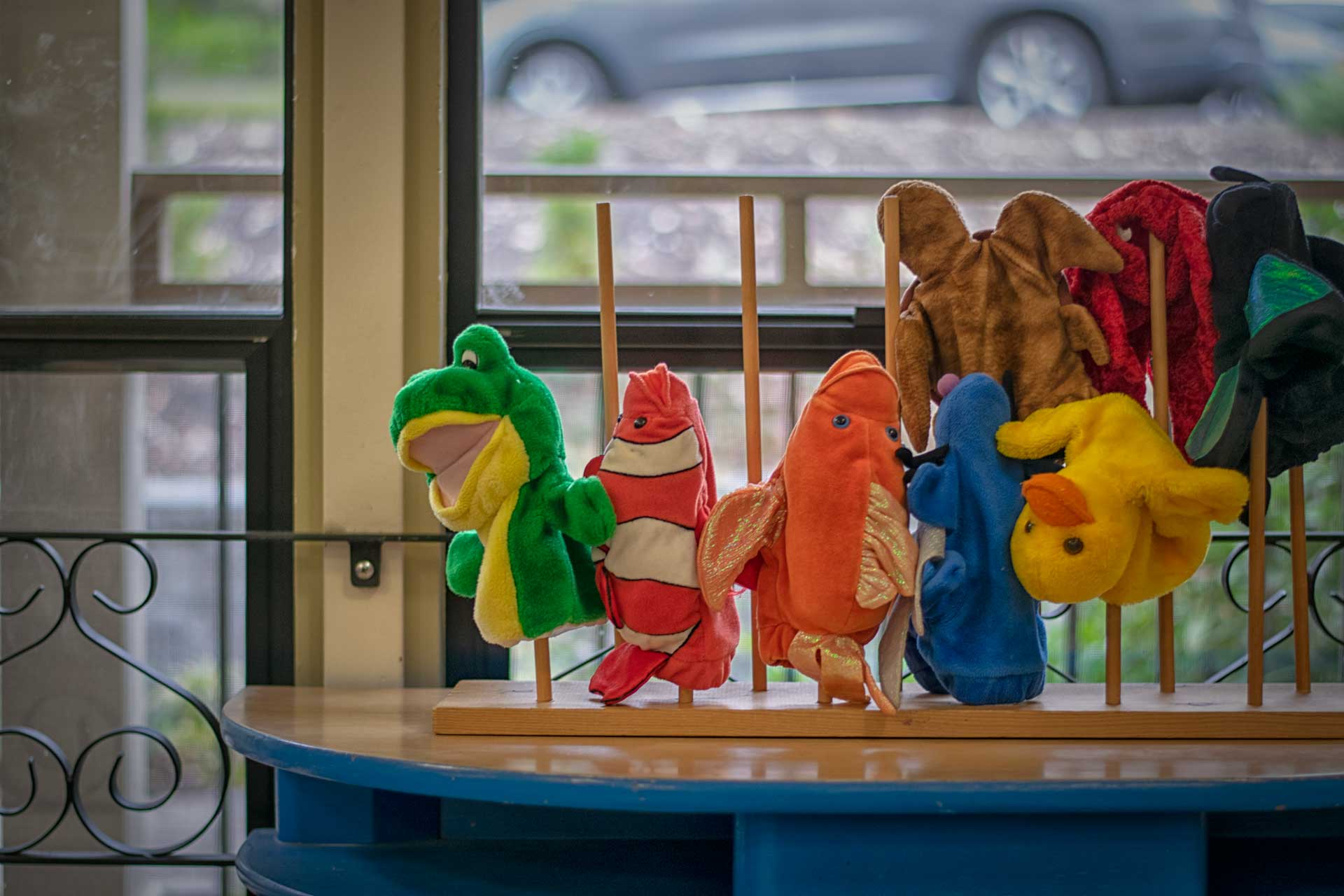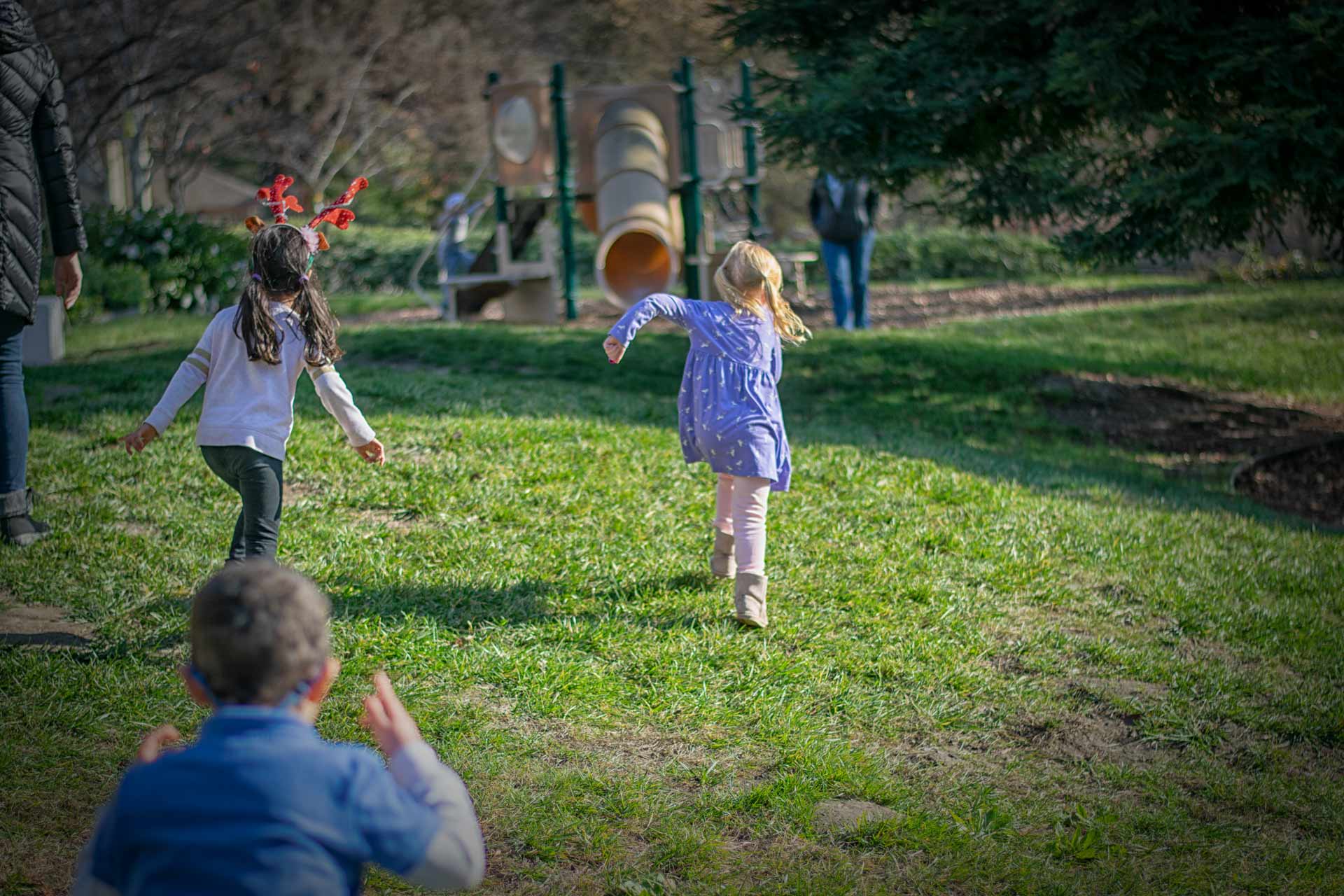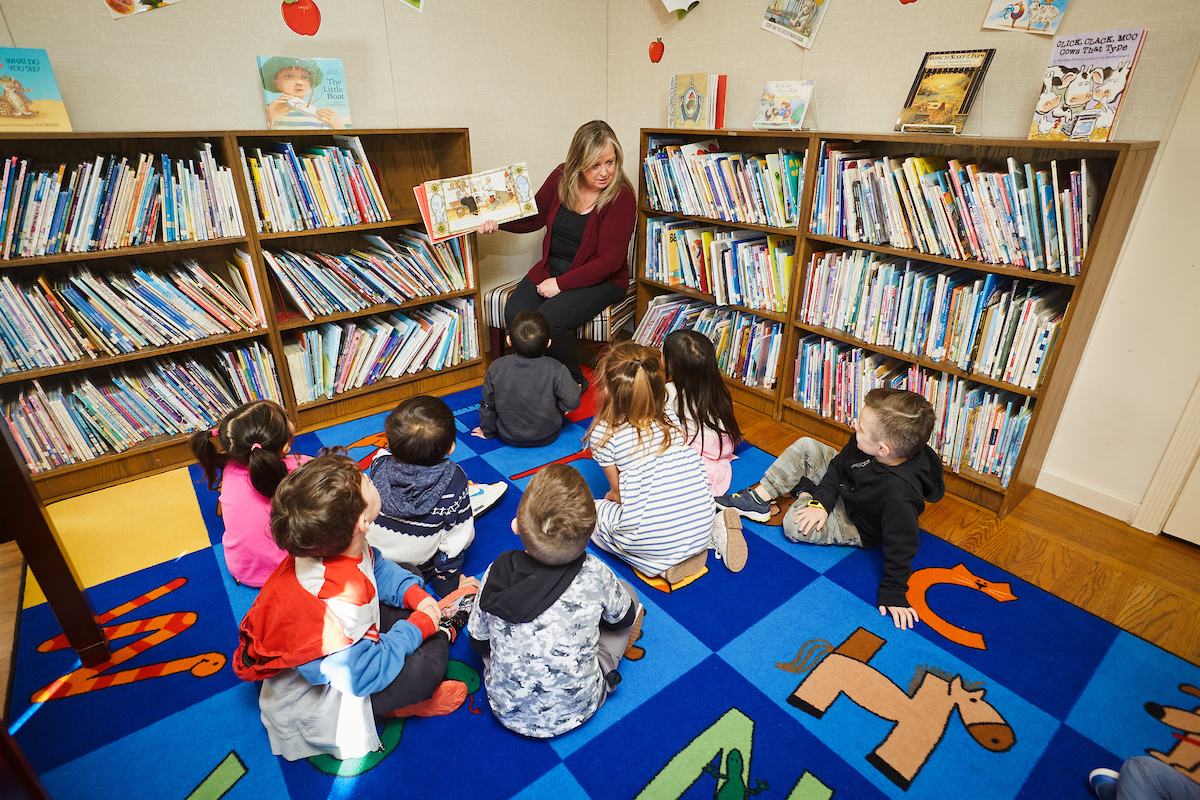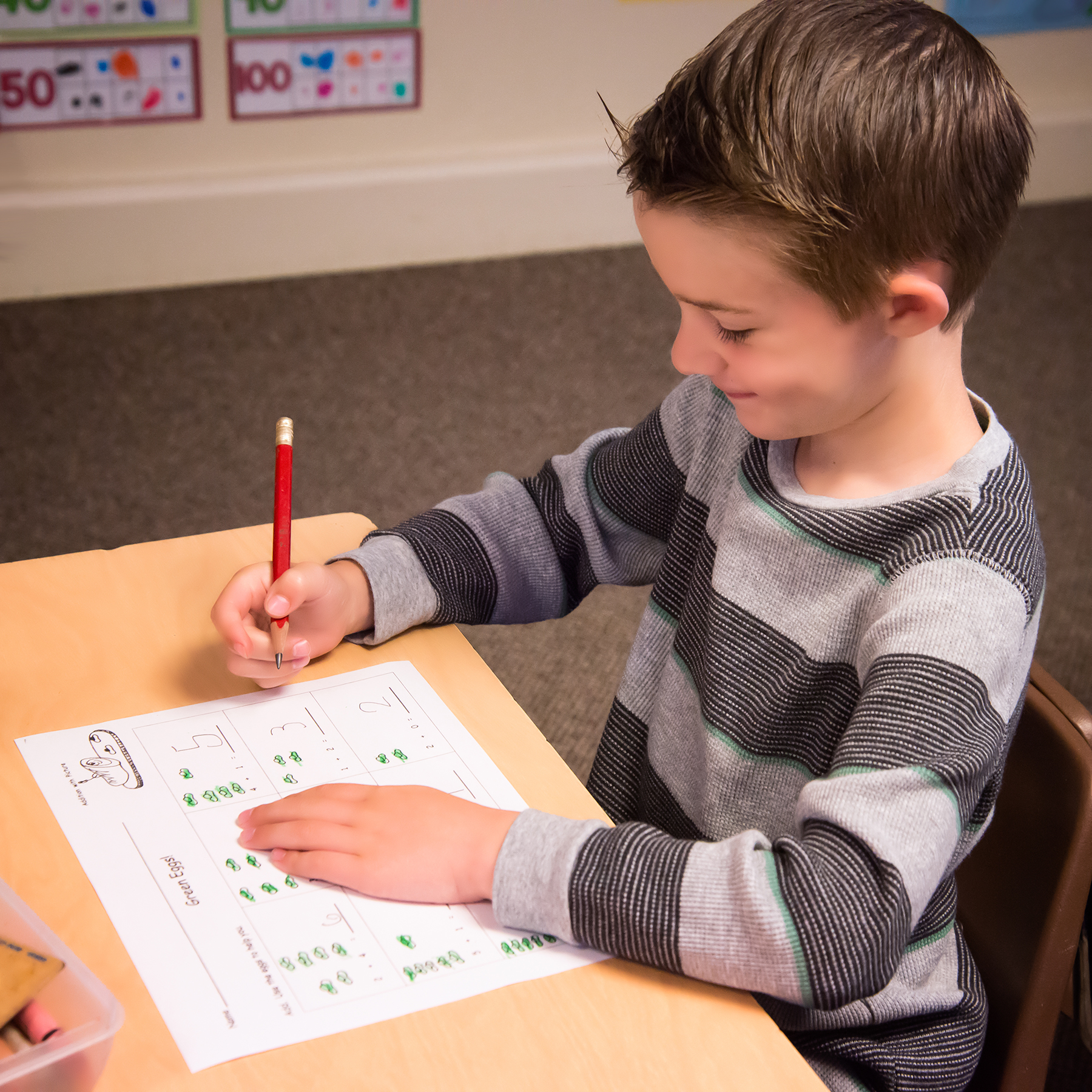
At first glance, preschool may seem like a place where children sing songs, paint with fingers, and play with blocks—and it is. But beneath those joyful moments lies something far more powerful: the early development of a child’s brain, behaviors, and identity.
That’s why preschool is important—not just as a stepping stone to kindergarten, but as the vital first chapter in your child’s journey as a lifelong learner.
At The Dorris-Eaton School, we see every preschool moment as an opportunity to nurture curiosity, character, and confidence–guided by a team of long-tenured, passionate educators who bring consistency, expertise, and heart to the classroom.

Kids running on the playground at Dorris-Eaton Preschool in Alamo, CA
What Makes Preschool So Important?
Decades of research tell us the same thing: the early years matter deeply. Between birth and age five, a child's brain builds over one million new neural connections every second. This stage shapes how children think, solve problems, manage emotions, and connect with others.
Preschool plays a critical role in guiding that growth.
At Dorris-Eaton, our preschool program in Alamo, CA is designed to support this critical window of development. Through engaging routines, rich conversations, and joyful discovery, children don't just absorb information—they learn how to learn.
Preschool Builds Social-Emotional Readiness
Preschool isn't only about early reading or math—it's where children learn to:
- Take turns and share space with others
- Follow multi-step instructions
- Transition smoothly between activities
- Communicate feelings and needs appropriately
- Separate confidently from caregivers
These social-emotional skills may seem small, but they create a powerful ripple effect. Children who enter kindergarten with strong social-emotional abilities are more likely to thrive in school—both academically and personally.
Key Benefits of a High-Quality Preschool Experience
So what makes a preschool truly high quality? Look for these essential ingredients:
1. Experienced, dedicated teachers
At Dorris-Eaton, our preschool educators hold degrees in early childhood education and bring a wealth of training and warmth to the classroom.
2. Dynamic, purposeful learning environments
Our classrooms offer multiple learning centers, hands-on materials, and both indoor and outdoor activities tailored to young learners that encourage imagination, discovery, and problem-solving.
3. Thoughtful and enriching curriculum design
Our curriculum integrates early literacy, math, science, and age-appropriate motor development along with enriching Spanish, music, and art—giving children a broad and balanced foundation.
4. Social development at the core
We intentionally model and teach empathy, kindness, and communication–empowering children to build healthy relationships and a strong sense of community.
If you're wondering what this looks like in action, our private preschool in Alamo offers a glimpse into an early learning environment that builds both joy and readiness.
Why Preschool Is Important for Long-Term Success
According to the National Institute for Early Education Research, children who attend high-quality preschools show:
- Stronger vocabulary and literacy development
- Early math and number sense
- Increased classroom focus and cooperation
- Improved academic and social outcomes in later years
In short, the benefits of preschool don't fade—they grow. What starts with confidence on the playground grows into leadership in the classroom and beyond.
That's the kind of growth we support every day at Dorris-Eaton. You'll see it echoed in the extraordinary outcomes our students achieve from K-8.
A Strong Start Begins Here
You want your child to be confident. Capable. Curious. You want them to love learning, not just today, but for years to come.
That's why preschool is so important—and why we've created a program that weaves together academic depth, artistic expression, and a supportive community..
Want to see it in action? Schedule a visit to The Dorris-Eaton School's Alamo Preschool Campus and discover how our classrooms come to life with purpose, play, and possibility.



